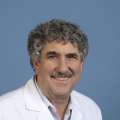UCLA Health is encouraging people to create an advance care plan – a written medical care plan – so their wishes are known in case of a life-threatening illness or injury. Doctors and staff at UCLA Health have programs year-round to help people devise their own care plan.
A monthly online forum, open to the public, is held through the and allows questions for doctors or staff. The next session is scheduled for April 23, 6-7 pm.
The Simms/Mann UCLA Center for Integrative Oncology hosts a specifically designed for people with cancer. The next event is scheduled for May 7, 6-7 pm.
"People often don't think about the future. We just want to normalize it for people to talk about. Just like you get life or car insurance to prepare. We want to encourage people to come up with a plan so they know their wishes will be followed," said , who directs the UCLA Health System Ethics Center and co-leads the Advance Care Planning Program with .
Dr. Wenger said the awareness campaign is important because patients and families sometimes assume the patient's wishes are obvious, but that is not always the case. It is valuable for people to contemplate what is important to them, their goals for medical care, he said, and to choose a person to be their trusted decision-maker if they can't speak for themselves.
“We value our collaboration with our palliative medicine and primary care providers to offer a monthly educational program tailored to the unique needs of our Simms/Mann Center patients and loved ones," said director of the Simms/Mann Center. "Having a safe place to access information, engage in conversation, and gain confidence around advance directives with others in similar circumstances is extremely meaningful.”
Identifying a decision-maker
Maybe the most important part of an advance care plan is designating someone to make crucial decisions about what treatments or life support a patient might receive while in critical condition.
"Often it is obvious who should contribute to decisions, if it's a spouse or close relative, but not everybody has someone like that. And if the advocate is not a family member, they will have a lot more access and power if the patient has given that to them in an advance directive," Dr. Wenger said.
He cited an example of a patient who chose his landlord as his decision-maker.
"He had no family and no close friends. But he told me he chose his landlord because they would watch TV together and found they thought the same way on things like medical treatment, so he trusted his landlord's judgment," Dr. Wenger said. "With no family, we would have had to consider him ‘unrepresented,’ if he hadn't chosen his landlord. There's just no way I would have thought to call his landlord to ask about the patient's wishes. So a little planning really worked out for him."
Someone who is not a family member will have a much easier time helping the clinical team carry out the patient's wishes if they are the Health Care Agent named in the Advance Directive, according to the Advance Care Planning Program manager for UCLA Health. She implements the program under Dr. Wenger and Dr. Walling, who is also director of Palliative Care Research for the David Geffen School of Medicine at UCLA.
"We're just trying to streamline the process and make it easy for patients to develop their own plan," Nuristani said. "For National Healthcare Decisions Day, we're continuing what we've been doing for 10 years – to raise awareness and encourage people to make their personal plan."
For adults at any age
Dr. Wenger emphasized that any adult of any age should consider making a plan.
"Obviously, a healthy 25-year-old is not going to be thinking about this as much as someone in their 60s fighting cancer," Dr. Wenger said.
"But unfortunate things do happen, and it is a really good idea to make a plan to ensure your wishes are met,” he said. “And if you want someone to be your health care agent, they will have a lot more power to follow your wishes if you designate them in your Advance Directive."






